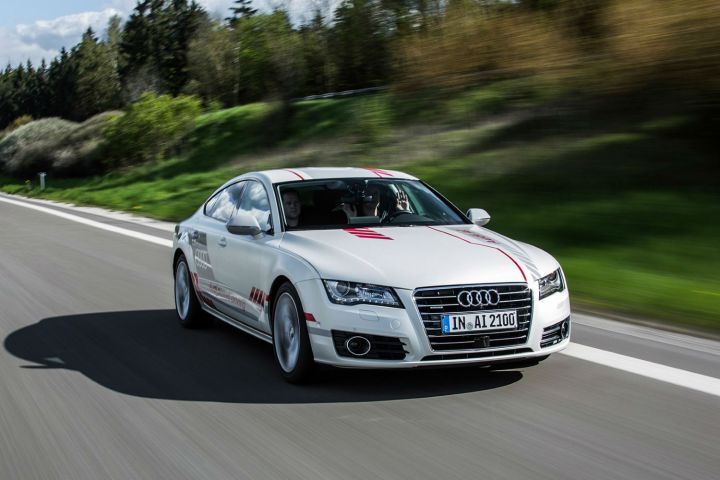
To satisfy New York state regulations, two trained engineers will be in the car at all times, one in the driver’s seat and another in the back. These engineers will monitor the system and ensure the car is operating safely. So far, the company says the company has logged “thousands of miles” in its concept cars without an incident.
Audi is the first automobile manufacturer to win a license to operate autonomous cars in the state, less than a month after Governor Andrew Cuomo announced the state would begin accepting applications. The test period runs through April 1, 2018, but comes with some fairly onerous stipulations to participate.
Automakers must carry a $5 million insurance policy per vehicle and reimburse state police for overseeing the tests, in addition to the requirements for trained engineers inside the car. Vehicles are also prohibited from operating near schools or construction zones. At the end of the test period, any participating automaker must submit a report on their findings to the state’s Commissioner of Motor Vehicles.
This likely keeps all but the most established automakers from participating, but for companies like Audi — who have committed to self-driving technology — it is a necessary cost.
“We have been leading the way in the development of piloted driving technology for more than a decade now, and testing in real-world environments is a key step in our pursuit of safer roads,” Audi of America President Scott Keogh said.
Altogether, 18 states have passed some type of legislation permitting autonomous vehicles according to the National Council of State Legislatures, however, the degree of what is permitted varies widely from state to state.


